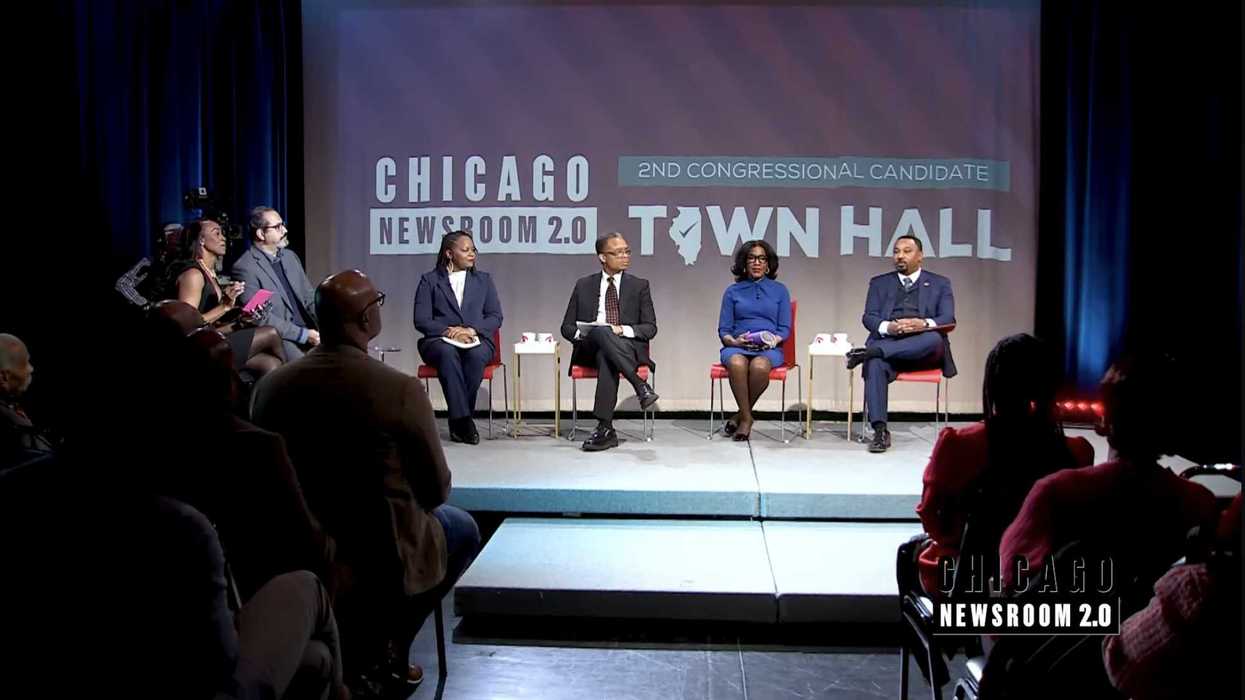Willis is the founder and director of Oregon's Kitchen Table at Portland State University and executive director of the Deliberative Democracy Consortium. She is the author of a textbook, a book of essays and two books of poems.
Is everybody back up in the buildin'?
It's been a minute, tell me how you're healin'
'Cause I'm about to get into my feelings
How you feelin'? How you feel right now?
-Lizzo, “It’s About Damn Time”
On the third stop of her latest tour, the pop phenom and human rights activist Lizzo performed at the Capital One Arena in Washington, D.C. Part way through the show, a small phalanx of security guards came on stage and handed her a crystal flute originally owned by President James Madison. She shushed the fans: “It’s like playing out of a wine glass, so be patient.” She played a few notes, then raised the flute over her head: “History is freaking cool, y’all.” The crowd roared with delight. Like almost everything that happens in D.C., that handful of notes — accompanied by a celebratory round of twerking — stirred up both breathless jubilation and pursed finger wagging.
A bevy of pearl-clutching men took to Twitter to register their displeasure. Matt Walsh complained: “Simply desecrating American history just for the sake of it.” Ben Shapiro argued that Lizzo’s performance “speaks to the, sort of, gentility of America's founders being brought into a context that is vulgar. It's the vulgarization of American history.”
There’s a lot to unpack here: outrage over the audacity of a Black woman, revulsion at the realities of women’s bodies and joylessness, for starters. But it’s hard not to see the metaphor. The poem, as we say in our house, writes itself. Or in this case, the essay.
The great flute debate — or as I am sure someone has taken to calling it, flutegate — bears an eerie resemblance to the current overheated rhetoric about the U.S. Constitution. On one side, the Founders are demi-gods whose words and intent are permanently codified, binding us and all future generations in perpetuity. On the other, the Constitution is the poisonous offspring of slavers, murders and colonialists, rendering it permanently irredeemable from the original sin of its conception.
At that center of all that passion sits James Madison who, in addition to serving as the fourth president of the United States and being the original owner of the now heavily contested flute, is often called the “father of the Constitution” because of his role in drafting and ratifying that document and the Bill of Rights.
But Madison — and more importantly, we — can only take so much before the fault lines become too deep and the American constitutional enterprise collapses under its own weight. Case in point tonight: I opened my evening email from The Atlantic, which features a cover story by Jake Tapper that begins by asking “How Bad Can a Lawyer Be?” and ends by concluding that “the constitutional right to counsel has become an empty guarantee.” In the middle is the horrifying and horrifyingly common story of C.J. Rice, a Black teenager who was convicted of murder after abysmal legal representation. Just below that, there was an interview with journalist Mary Ziegler, who wrote a story about the contemporary anti-abortion movement in which she concluded: “Some people in the anti-abortion movement have been willing to make changes that have eroded democracy to advance their agenda, because they think that fetal rights, in some ways, are more important than democracy itself.”
Contestation around the role and meaning of the Constitution is no longer — if it ever was — the province of the Supreme Court and a few Ivy-educated litigators sipping Aperol spritzes on Martha’s Vineyard. We bump up against the four corners of the Constitution in many, if not most, of our hottest national arguments — guns, marriage equality, racial justice, abortion, campaign finance, the death penalty, and on and on.
In addition to the white-hot debates over substantive policy, the institutions and structures are also withering under the blazing scrutiny of a contentious, motivated, multicultural, multiracial and well-educated citizenry. As the nation has grown larger, more urbanized and more diverse, our essential institutions have become less and less democratically responsive. The most frequently offered proof of this democratic regression is the difference in the number of constituents that senators from California represent (39.5 million) versus the number that Wyoming senators represent (577,000). Put another way, Wyoming voters have 68 times the voting power of California voters.
The imbalance of the Senate is replicated in the Electoral College, leading to the outsized influence of smaller, whiter, less urbanized states in the selection of the president. To top it off, those same skewed offices are responsible for appointing and confirming Supreme Court justices, compounded by the fact that nine appointed judges with lifetime tenure are unlikely to be particularly responsive to the other 330 million of us. Lord save us all if we are looking to the House of Representatives to be the most democratic of our institutions.
To put it in rather crude terms, the three pillars of a liberal democracy — majority rule, human rights, and self-governance through participation — are all teetering under stress, and they require our rapid attention. There is only so much structural unfairness one country can take.
For the past few years, I have been on a tear, arguing to anyone who will listen that we need to overhaul the Constitution tout suite. Most people don’t disagree with me. People know it’s true.
But we’re afraid. We’re afraid that things could get worse. We’re afraid of the motives and intentions of “the other side.” Some people are afraid that if we open up the Constitution for reform, someone will stuff it full of positive rights like health care and housing and universal basic income. Others fear that somebody will succeed in stripping away the few civil liberties and human rights that remain. And those are all valid fears. But should we stay frozen in that fear? Do we want to live in the eternal crouch of “it could get worse” or do we want to step up, take some responsibility and have faith that we can do better?
Of course, a 1,300-word column is not the place to hash out the details. There is a lot to be said about how and when and by whom and under what circumstances constitutional reform should be undertaken. There are contemporary examples where people have put their heads together and done it. And I will write about those examples in future columns. But at this point, I don’t think the barrier is a question of the mechanics. Rather, it’s a question of whether we trust ourselves to do better. It’s a question of whether we’d rather complain and argue rather than take responsibility for our collective future. It’s a question of will.
It is tempting to validate this call to the barricades by quoting another of the oh-so-flawed founding fathers, Thomas Jefferson, who argued that the Constitution should be updated “every nineteen or twenty years.” But I am tired of looking to Jefferson and Madison and George Washington and George Mason and Alexander Hamilton (just you wait ... just you wait ...) for validation. I’d rather look to Lizzo and the joyful crowd that cheered for a 200-year-old flute in the hands of a young, Black, female, body-positive musician. It is up to us now to decide how we want to live together. What powers and limitations we think are essential. What rights are sacred. It is up to us to turn to one another and decide who we are and what kind of country we want to leave for future generations. It’s up to us. It’s our flute — and our Constitution — now. And it’s about damn time.




















